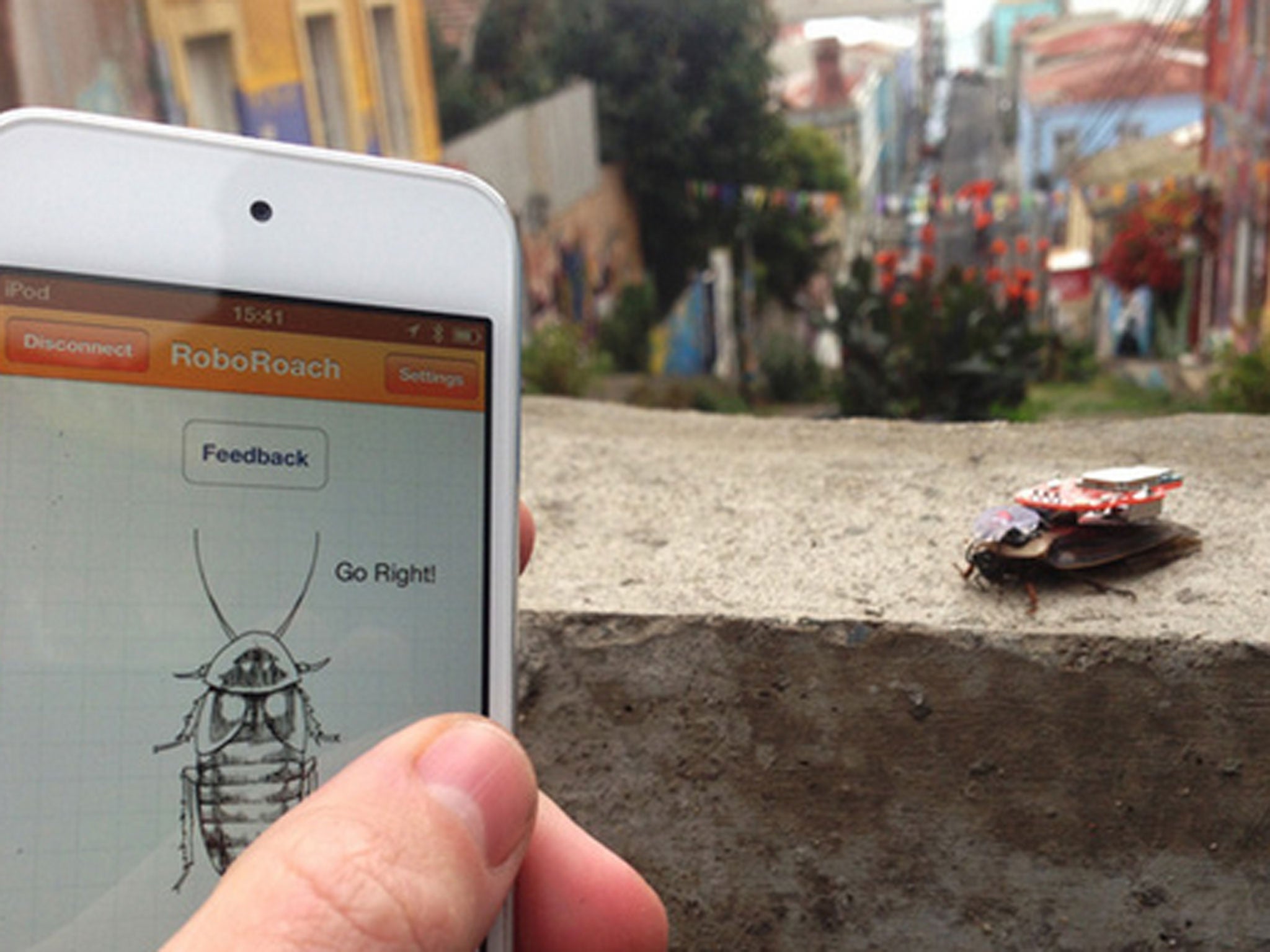RoboRoach app encourages children to turn cockroaches into smartphone-controlled toys

The developers of a new electronic device that fits onto cockroaches, allowing their movements to be controlled by a mobile phone app, have been criticised for animal cruelty.
Critics said that it could encourage people to think of animals as “mere machines or tools” but Michigan-based Backyard Brains have defended RoboRoach.
The company says that its $99 (£62) device was designed to encourage children to take an interest in neuroscience.
Launched on Saturday, after raising $12,339 (£7,700) on the crowdfunding website Kickstarter, RoboRoach electrifies the nerves in a cockroach’s antennae, making the insect think it has met an obstacle, a sensation that can be “manipulated to steer it”, says Backyard Brains.
Using a mobile phone app to control it, the cockroach effectively becomes a six-legged cyborg, allowing users to make it turn left or right. For up to 10 turns at least until the insect’s brain learns to ignore the stimuli. Although after 20 minutes or so it works again.
But it is the procedure that is required to implant the device into the cockroach that has upset some scientists.
According to Backyard Brains, the cockroach has to first be placed in ice-cold water in order to “anaesthetise” it, then some of the wax on its back is sanded off. The electrode connector is then glued into place and a needle is used to make a small hole in the thorax in order to insert a wire. Its antennae is then cut and electrodes inserted.
Michael Allen Fox, professor of philosophy at Queen’s University, told the journal Science, it “encourage(s) amateurs to operate invasively on living organisms” and encouraged people to think of the insects as “mere machines or tools”.
Animal behaviour scientist Jonathan Balcombe, quoted on US scientific websites, said: “If it was discovered that a teacher was having students use magnifying glasses to burn ants and then look at their tissue, how would people react?”
But a spokesperson for Backyard Brains told BBC News: “At the moment this crucially important subject is woefully under-taught,” she said, “with many schools teaching neuroscience within the biology syllabus when it should be a subject in its own right.
“That is especially the case when diseases of the brain such as Alzheimer's take a heavier toll within society.”
Subscribe to Independent Premium to bookmark this article
Want to bookmark your favourite articles and stories to read or reference later? Start your Independent Premium subscription today.

Join our commenting forum
Join thought-provoking conversations, follow other Independent readers and see their replies